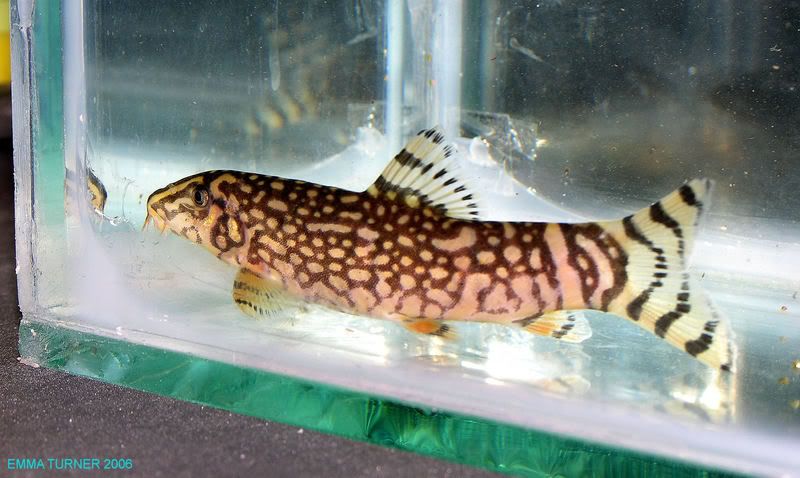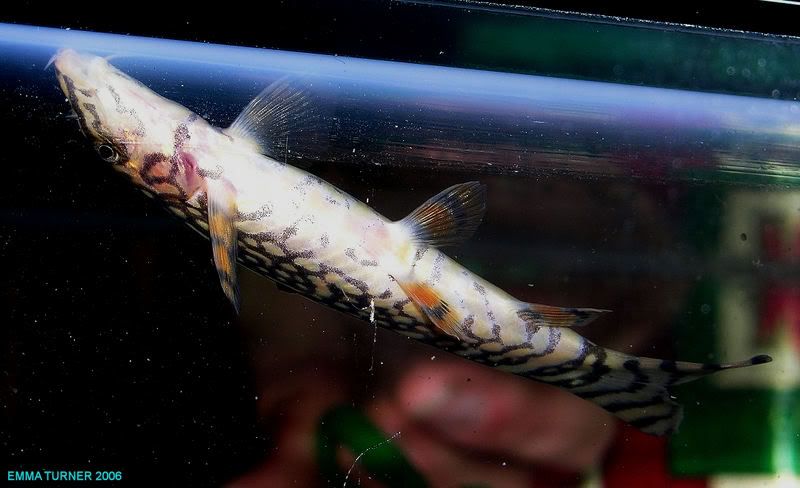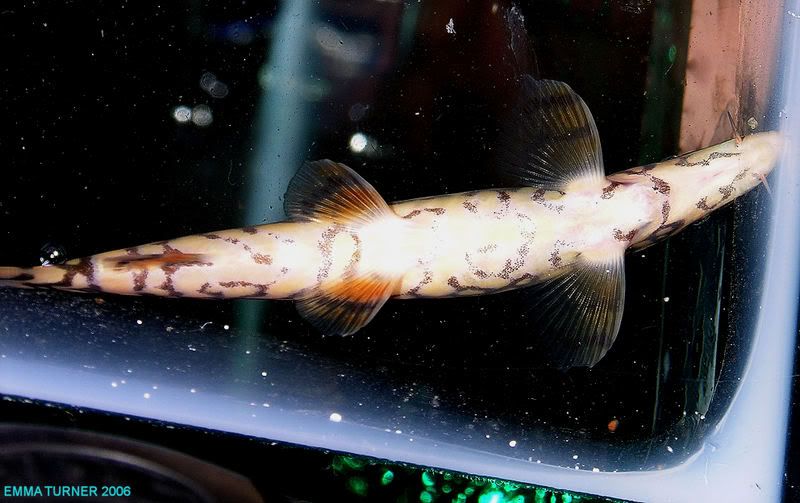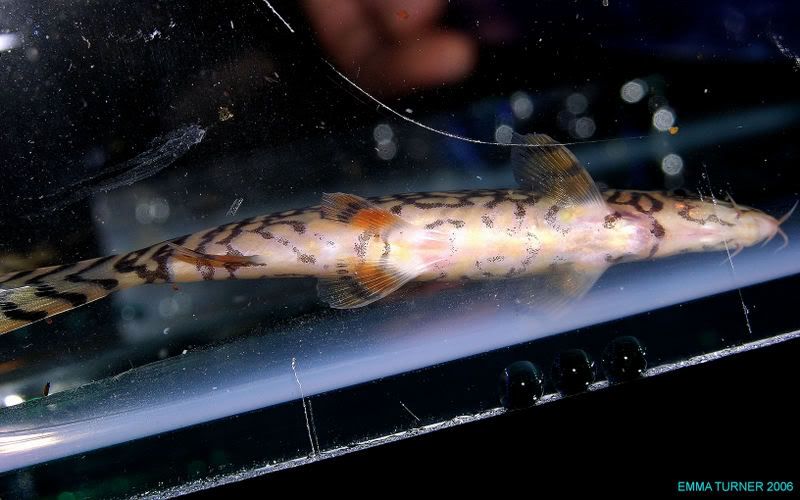sophie wrote:
are there no polish speakers here at all?
I'm not very good english speaker but i can try to translate text about
Botia birdi 
.
Botia birdi:
"Birdi or not a birdi? Is it individual species? It's one of the most mysterious loaches from Decan. For the first time it was discovered in Kashmir by Daya (1878) as
Botia almorhae but Hora (1922) suggested the name
Botia birdi. Young and adults loaches, called in kashmiri language "rama gurun" , looks like Yoyo loaches (
Botia almorhae). The same or similar species from the big area in north India and Pakistan is called
Botia lohachata."
"Indian ichtiologist Menon (1993) identified
Botia almorhae and
Botia lohachata as one species but separate
Botia birdi because it has got shorter pelvic and anal fins. Kulander, after analysing the
Botia almorhae holotype, a lot of fish from
Botia birdi species (from British Museum of Natural History) and many similar speciments from Almorha, Bengal and Chacas streams, drew a conclusion that
Botia birdi is individual species. Unfortunately most of specimens analised by Swedish ichtiologist were in a bad condition, and they couldn't do precise fish colouring tests. The result of several years tests , managed by Swedish expedition, were only 3 speciments classified as
Botia birdi (30.6-99.4mm long) - 2 from Jhelum river and 1 from Dal lake."
"Mirza and Syed (1995) described a big loach (
Botia javedi), then recognized as
Botia birdi, as brown at the top of body and creamy-coloured at the bottom, without stripes on a body but with stripes on all of the fins. Chaudhuri (1909) defined top of the bodies of speciments, constituted today a reference group, as speckled by irregular ellipses from black and brown stripes. Under that ellipses were wide black and brown stripes on both sides of the fish which ended in the bottom of the body and sometimes overlapped.
Botia birdi (the Indus basin) has got shorter fins than
Botia almorhae (the Ganges basin), especially pectoral fins which don't reach to the dorsal fin. Birdi loach is visually more thickset than Yoyo loach, and never generate characteristic net pattern like Yoyo's. However Kulander emphasize fact, that males have got longer fins than females so unambiguous verdict is possible after tests on more speciments. Although Menon located
Botia birdi in Kashmir and Kangry (Satled basin), Kulander think it lives in bigger territory (including Kabul basin and a big part of Indus lowland (Mirza 1975))."
"However we can be suspicious and sceptic to only three speciments caught, we can't not observe the fact that
Botia birdi is recognized, by taxonomists as individual species. We can find the
Botia birdi name in scientific studies about animals from Indian subcontinent and in internet services regarding Kashmir water resources. Unfortunetly in spite of insistent efforts , I've never found photos of this mysterious loach.
So is it a fiction like Nessie from the Scottish lake Loch Ness or a species which in spite of it's undeniable being only from time to time appears in info-services?"
"Sometimes definitely easier is to be a sceptic and don't try to find the truth. When about 2,5 years ago, in a pet shop I saw four, small and beautifully gold-coloured loaches with characteristic black stripes , offered as "Gold Loach" I was almost sure that they were artificially coloured Yoyo Loaches. Because it was time when I didn't have a lot of loaches I decided to buy this nice loaches. I was sure that this beautiful
gold colour will dissolve after some time."
I'll translate all of the text as soon as possible.




